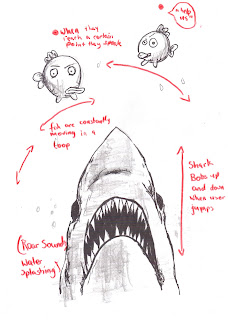


The theme for our outdoor installation, for our contemporary art class, was UL40. UL40 is a celebration of the Universities 40 years in business and to honour the achievements and accomplishments of both teachers and students. UL40 also inspires yet another 40 years of rich possibilities here at UL.
For the assignment Leslie Carboinnier and I teamed up for the project. We wanted to create something quite playful, colourful and above all something joyful that would mirror the ethos of UL40.
Firstly we investigated the Plaza in UL, where our class exhibition was taking place. We documented where there was the greatest amount of foot traffic, where were the most visible spots and also it was important to take into account where we could place an installation without obstructing anyone. After our observations we decided upon the lawn directly in front of the main building and to the left of the library. Firstly this spot was very visible from the plaza, the steps leading to the computer science building and to those sitting in the library. What I liked most about the lawn was the element of trees and grass which would give our installation a more whimsical feel.
For our installation we went with our first instinct. Which was to create 40 balloon sculptures in an array of bright, cheerful colours. The balloons were to be attached to abstract shapes to appear as if they were being lifted off the ground. The sculptures were meant to represent the diversity of students and teachers from different backgrounds and to celebrate all of their accomplishments and contributions.
We decided to call the installation; Let's get it poppin'!
The Construction Process
We decided upon paper maché sculptures for the balloons, and attaching them to bamboo sticks, that we hoped would give the illusion of balloons tied to string. For the bases we made abstract and shapes from salt dough, which consists of salt, flour and water. It has a similar consistency to clay is quite heavy, which would make a steady base. To protect the salt dough and paper maché from the elements we spray painted then varnished them. The construction process was quite time comsumering as a lot to thought and care went into building each of the salt dough bases, we also decided upon building many individual sculptures
Reflections
Unfortunately some of our bases where not steady enough to support the bamboo and paper maché balloons, but our solution to this was to simply stick the bamboo into the soil and place the extra bases sporadically around the installation. We also had to settle with 22 sculptures but we felt it didn't effect the message we wanted to convey and there were enough to have a strong impact visually.
Another problem we faced, was the weather! We were not expecting the 40km winds that came bustling our way, but fortunately and surprisingly our installation stayed standing through the harsh elements. They were a little beat up at the end but they did us proud and stood strong!
Overall I was very pleased with the outcome the colors really stood out and our installation garnered a lot of attention. If we were to do it again I'd invest in much stronger materials but for a pop up installation, it did it's job!




















